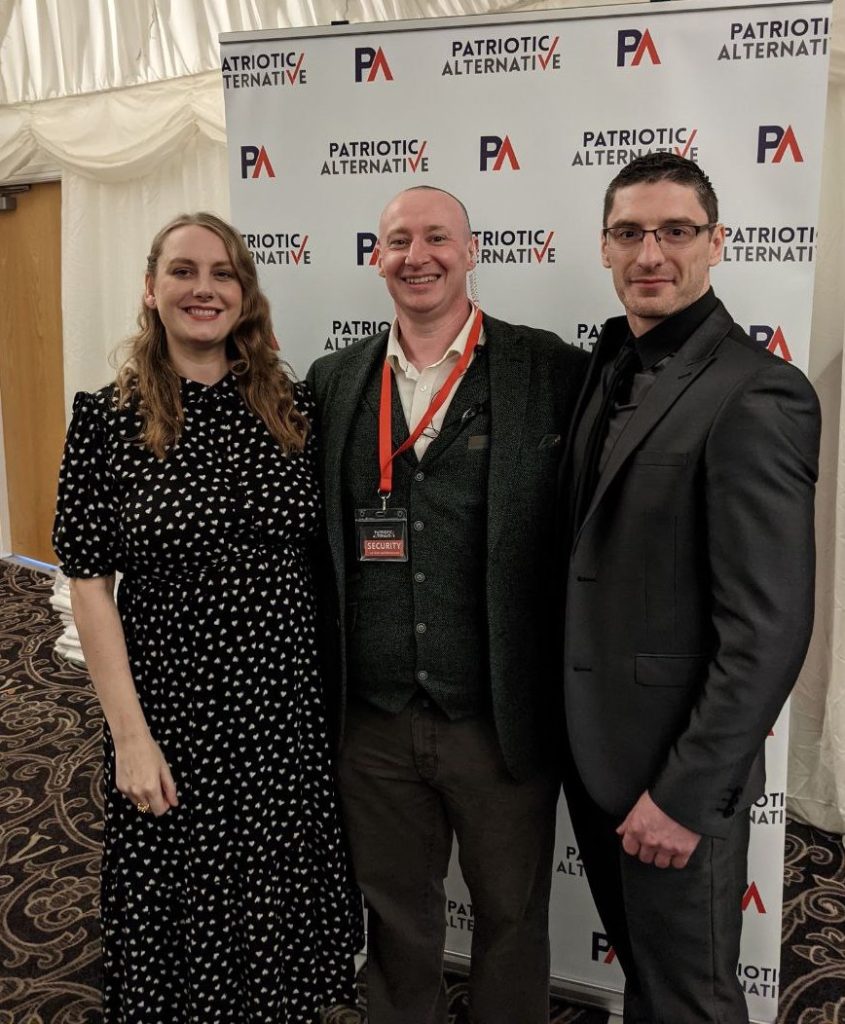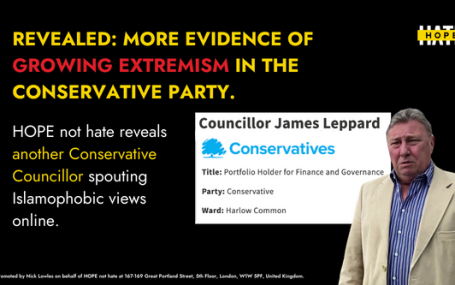HOPE not hate uses cookies to collect information and give you a more personalised experience on our site. You can find more information in our privacy policy. To agree to this, please click accept.
Members of Patriotic Alternative, the UK’s largest fascist and most active fascist group, were left stunned by last week’s rupture.
A group of disgruntled officers, led by the group’s National Administration Officer Kenny Smith, have broken away and proclaimed themselves the founding members of a new organisation, the “Homeland Party”. Smith claims to have taken the majority of PA’s appointed officers with him, along with six Regional Organisers, the large majority of PA’s Scottish and West Midlands branches and more.
The ostensible causes of the split are fairly humdrum: PA’s leader Mark Collett argues that Smith’s insistence on stringent vetting procedures is alienating potential signups to the organisation, while Smith believes Collett prioritises PA’s online content creation over offline campaigning, registering as a party and engaging in local politics.

Yet there are likely to be deeper roots to the dispute than these fairly minor administrative issues. Collett and Smith were on opposite sides of the civil war that racked the British National Party (BNP) in the late 2000s, and their recent alliance has always seemed precarious.
Mark Collett is notoriously difficult to work with, and PA has been beset by defections and feuds that have left few of PA’s original front-facing activists and organisers still active with the group. For example, the majority of speakers at PA’s inaugural conference in 2020 have since left the group under acrimonious circumstances, often after a personal dispute with Collett himself. HOPE not hate had repeatedly flagged that PA’s Scottish branch seemed somewhat independent of the national leadership and that trouble might be brewing.
It is too early to tell how Smith’s new Homeland Party will differ from PA, and how successful it will prove. Neither side has highlighted any major ideological or strategic disputes that point to a drastically different direction for the new group. So far it appears that Smith and the other defectors are simply seeking to create a more efficient and proactive version of PA, gaining a degree of distance from Collett and PA’s toxic reputation and a fresh start for registering with the Electoral Commission, a pursuit in which PA has been repeatedly thwarted.
Homeland has scooped up some of PA’s best-known organisers, and it is possible it will find success where PA has not. However, it faces considerable difficulties from the outset. There are few examples of far-right splinters that have matched or exceeded the success of their parent group, with many collapsing soon after a schism, splintering further into warring factions. Defectors are often brought together by a diverse and sometimes conflicting range of grievances and ambitions, which can cause difficulties.
A coordinated exit also means that all members of the new splinter group have “founder” status, which can make it hard for the leadership to enforce their authority. Smith is also known to be a fractious character in his own right, and so it is unclear how successful he will be in holding this hastily-assembled new grouping together long-term.
Whatever the prospects for the Homeland Party, it is clear that this schism represents a devastating blow to PA. Kenny Smith claims that he has brought 32 of PA’s 54 “officers” with him to the new outfit, a clear majority of those holding any kind of position in the group. This would clearly strike a major blow to PA’s capacity for organising and campaigning in the near future.
Many members are weighing up their options at this stage, and the full extent of the damage is yet to be revealed. One key PA figure confirmed to have moved over to Homeland, West Midlands regional organiser Connor Marlow, offered a damning analysis of what the split means for PA:
“I think the relationship between the two organisations is probably going to be not much, because yesterday PA died. Yesterday, every activist that was worth his salt came along. Yesterday, every officer with political ambition came to us. We are the future of nationalism. PA has no political aims.”
Connor Marlow, former PA West Midlands regional organiser.
The existence of a credible alternative to PA poses a threat to the group’s viability and perhaps even its survival. When responding to its legions of critics in the wider far right, PA members often point to the lack of alternatives, calling it the “only game in town” and deriding its enemies as armchair critics. If Homeland can occupy the same space and organise similar activities, that defence will no longer be applicable. The new group has made a clear effort to do just that, with its recent activities and social media output virtually identical to that of PA.
Fractures on the far right are to be celebrated by anti-fascists. Infighting and reorganisation is a waste of time and resources that would otherwise be spent on pushing their toxic agenda. Schisms are also a fruitful time for intelligence gathering, with numerous embittered former comrades keen to reach out to groups like HOPE not hate to tell their side of the story.
We will continue to watch the fallout closely, and will have further exposés on the Homeland Party in the near future.

Cllr James Leppard expressed Islamophobic sentiments and endorsed abuse of Sadiq Khan HOPE not hate can reveal further evidence of the growing problem of extremism…